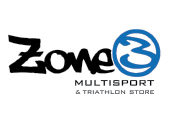The Question of Time
"'Begin with the end in Mind' is based on the principle that all things are created twice. There's a mental or first creation, and a physical or second creation to all things." Stephen Covey, The 7 Habits of Highly Effective People.
Time is a huge factor in the life of a triathlete. There are three major areas of time management: weeks of preparation, hours within those weeks and what can come down to minutes on race day. The time given to preparation is inextricably attached to your overall time on race day.
There is so much chatter amongst us about how much time is needed to prepare for a race. A recent industry magazine boasted an article entitled "13 weeks to a 13 hour Ironman". Julie Moss and Mark Allen dedicated a whole chapter of their book "Workouts For Working People", they called it "The Energy Pie - creating the time". I get calls periodically asking if I can help an athlete get ready for a race that's happening just one month from the call. A worst case scenario is something like: "Well, I've been bed ridden for 18 months but feeling better now and I want to do this half Ironman next month in under 5 hours but I can only train a few hours a week" Absurd! The fantasy scenario sounds like: "I'm healthy, active and rested and there's an Olympic distance race in 6 months and I'm looking to be in the top ten of my age group. Do you think I can make it by giving 10 hours a week?" Nice!
I once saw a slogan on the wall of what must have been an independently owned diner, it read: "Service, Quality, Price - choose any two". Here are the hard and fast factors that determine how much time you need to prepare as a triathlete: Current Fitness, Race Goal, Time Availability. They seem to flow together in pairs as well; if your race goal is to simply finish then you needn't be all that fit or have tons of free time to give. If your fitness is just sitting there waiting to be applied then you may be able to set a high goal with less time than others.
I like that old alliterated adage "Prior Planning Prevents Poor Performance". Somebody smart said that long before triathlon was a sport but it suits our sport better than any other. The first step is setting a goal and setting it early. The longer the race or loftier the goal the more time you'll need. If an Ironman or a Championship is of interest to you then give yourself a well planned year. If the half at Wildflower each May is tickling your fancy then make a plan by October. If you just want to get through your first tri ever and it's a sprint then you may only need 12 weeks. The year or 8 months before a big race should include some critical phases: Transition (down time or recovery), Preparation (getting ready to train), Base (building the endurance needed), Build (pushing our the edges of the envelope), Peak (honing the details), Race. If we are talking about 12 weeks to a sprint then you should still include most of these phases but you will spend much less time in each and likely have to eliminate one or two.
As a point of reference this article should appear before your eyes mid May, 2001. Let's take the Los Angeles Triathlon or the Malibu as an example. May 28th , 2001 falls on a Monday and that day represents 15 weeks prior to the LA Triathlon (16 weeks out from Malibu). If you're fit, experienced and have a solid base built then you might divide those 15 weeks into 4 final weeks of base, 8 weeks of building, 2 weeks of peak activity and 1 week of taper. If that race stands before you as your first or longest race ever then you may slice up the pie a little differently: 8-10 weeks of base, 4-6 weeks of building, 1 week to taper. At AcmeCoaching.com (coming soon to a computer screen near you), triathlon coach Jamie Silber and I have established programs that are based on these exact principles of preparation. But they are definitely not ours alone. Most of this periodized training philosophy stems from years of research done by an Eastern Bloc athletic coach of yore (1960's) named Tudor Bompa. This information can be found regurgitated in many locations, my favorite has to be The Triathlete's Training Bible by Joe Friel.
Training time is hard to come by for all of us. It's best to stay organized and prioritize the key workouts. Try to strive for quality before quantity and make certain to include frequent, high quality rest.



